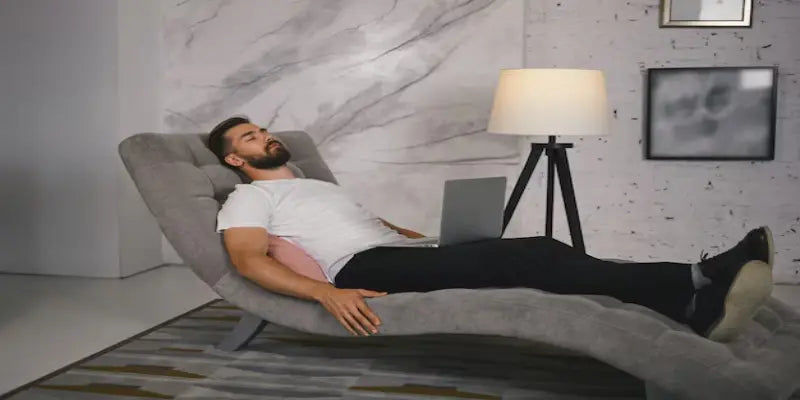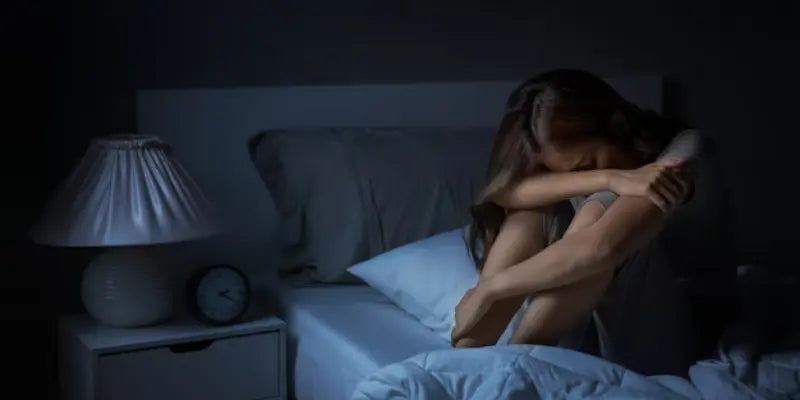
Can Sleep Apnea Cause High Blood Pressure?
Sleep apnea is a common condition in which your breathing stops and restarts repeatedly while you sleep. This prevents your body from getting enough oxygen to function properly. People with sleep apnea are often unaware of their symptoms until a partner raises concern or a doctor recommends a sleep study.
High blood pressure, often known as hypertension, occurs when the force of your blood pushing against the walls of your blood vessels is persistently too high.
Sleep apnea and high blood pressure are linked to each other. In this blog, we’ll understand how these two conditions are related to one another.
Relationship Between Sleep Apnea And Blood Pressure
If you already have high blood pressure, sleep apnea can make it worse. Sleep apnea is classified into two types: obstructive sleep apnea, which is fairly frequent, and central sleep apnea, which is much rarer.
Obstructive sleep apnea (OSA) is a condition in which your airway becomes obstructed while you are sleeping. OSA wakes you up all night, resulting in snoring and daily lethargy.
People with OSA are more likely to develop hypertension than the general population. People with high blood pressure may be more likely to acquire OSA than their peers.
According to research, 50% of people with OSA have high blood pressure, and 30% of people who have high blood pressure have OSA.
Can Sleep Apnea Cause Blood pressure?
According to different studies, there is a strong link between sleep apnea and high blood pressure. Here is how sleep apnea causes high blood pressure:
- Frequent Lack of Oxygen: When someone has an episode of sleep apnea, their oxygen levels in the blood drop. In response to this, the body increases the blood pressure to boost oxygen delivery to the heart, brain, and other vital organs.
- Sympathetic Nervous System Activation: In response to low oxygen levels, the body activates the sympathetic nervous system, triggering the "fight or flight" response. This response increases the heart rate and constricts blood vessels, raising blood pressure.
- Hormonal Changes: Sleep apnea can affect hormones that regulate blood pressure. For example, it can enhance levels of aldosterone, a hormone that causes the body to retain sodium and water, raising blood pressure.
- Increased Inflammation: The continuous disruptions in breathing and the resulting stress on the body can lead to chronic inflammation, which contributes to high blood pressure.
How to Manage Sleep Apnea and Hypertension
Given the strong link between sleep apnea and high blood pressure, managing both conditions is crucial. Here are some strategies:
- Continuous Positive Airway Pressure (CPAP) Therapy: CPAP is the most common treatment for sleep apnea. It involves wearing a mask that delivers steady air pressure to keep the airways open during sleep. CPAP therapy can significantly reduce apnea episodes and improve blood pressure control.
- Lifestyle Changes: Weight loss, regular exercise, and a healthy diet can help manage both sleep apnea and high blood pressure. Reducing alcohol intake and quitting smoking are also beneficial.
- Medications: For those with hypertension, medications may be necessary. However, treating sleep apnea can often enhance the effectiveness of these medications.
- Monitoring and Follow-Up: Regular monitoring of both conditions is essential. Sleep studies may be needed to evaluate the severity of sleep apnea, and regular blood pressure checks are vital to ensure it remains within a healthy range.
Conculsion
Your heart and lungs are interconnected and dependent upon one another for healthy operation. Early identification and management of sleep apnea require recognizing symptoms such as loud snoring, gasping for air while sleeping, and excessive daytime tiredness. If you have sleep apnea, consult your doctor about how to avoid or treat pre-existing high blood pressure issues. Untreated high blood pressure can cause a number of issues.
If you are suffering from sleep apnea, you can consider investing in a good quality pillow that can help you with sleep apnea. A fast online search will bring up different types of pillows designed for treating sleep apnea. They are designed to be used with or without a CPAP machine. They come in a number of forms, including a wedge shape that lifts the upper torso.
Sleeping on your back with your body elevated from the waist up may help keep your airway from collapsing, thereby improving your condition. A wedge pillow can help you sleep better,, and you can use it in multiple ways. If you are looking for a good quality and affordable option, the Sleepsia Wedge pillow is the perfect choice for you.








